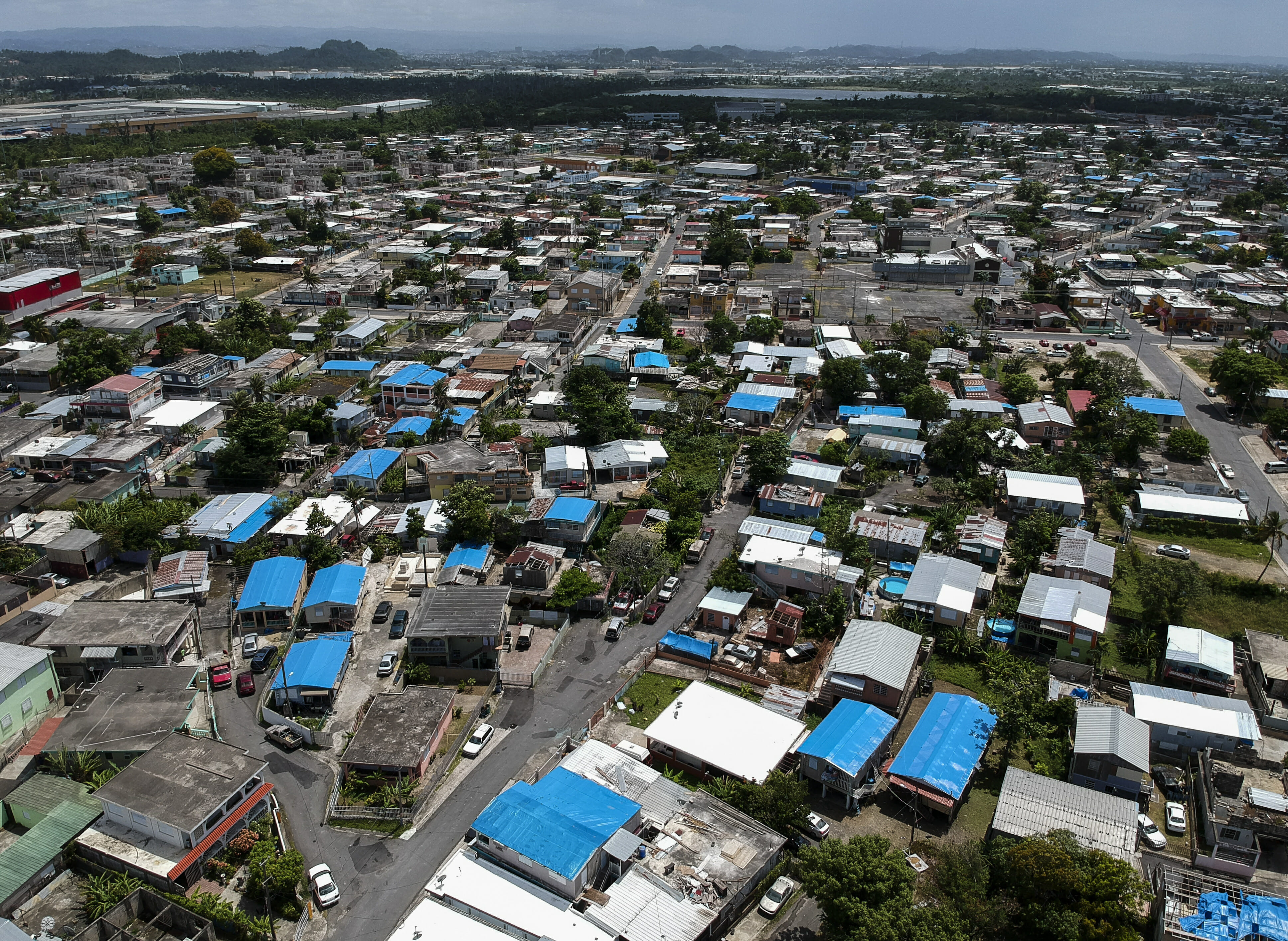
Disaster aid bill faces tricky path as it heads to Senate
WASHINGTON (AP) — A battle over funding for Puerto Rico is complicating the path forward for a long-delayed disaster aid bill that’s a top political priority for some of President Donald Trump’s Republican allies as it heads to the Senate floor this week.
At stake is $13.5 billion emergency relief legislation to help southern farmers, rebuild hurricane-damaged military bases, repair water systems, and assist victims of last year’s California wildfires, among other purposes.
The measure has wide backing from both Democrats and Republicans and is perhaps most ardently backed by Trump loyalists such as David Perdue, R-Ga., and Thom Tillis, R-N.C., who face potentially difficult re-election fights next year.
The White House, however, isn’t pleased with the bill and is particularly opposed to efforts by Democrats to make hurricane relief to Puerto Rico more generous. Senate Republicans are supporting food aid to the devastated island and are working with top Democrats like Patrick Leahy of Vermont to try to speed passage of the measure by adding additional help for Puerto Rico.
The House passed a companion $14.2 billion version of the legislation in January, but it got tangled up in the politics of the partial government shutdown and Trump’s demands for a wall along the U.S.-Mexico border.
The measure is especially sought by lawmakers from southern states like Florida, Georgia and North Carolina, which were hit by hurricanes Michael and Florence last year. There’s money to respond to an earthquake in Alaska, California wildfires and floods in South Carolina, and for the ongoing recovery effort in Puerto Rico, which was devastated by back-to-back hurricanes in 2017.
And now there’s widespread flooding in Nebraska, Iowa and other Midwestern states.
In an official position paper in January, the White House said the House bill was far too generous, objecting to almost $6 billion worth of the measure. But it stopped short of an outright veto threat, and GOP aides say Trump has since told Perdue that he’d sign the Senate version of the bill, which mirrors the House plan in most respects.
For many lawmakers, passage is already overdue. Puerto Rico has already cut nutrition benefits by roughly 25 percent amid the funding crunch and Georgia lawmakers warn that their farmers need help in the run-up to planting season.
“We are past the time when this should have gotten done. I have spoken with the president many times about this. His commitment to our farmers is unwavering,” Perdue said last month.
Trump’s commitment to aid to storm-ravaged Puerto Rico is in question, however.
Last fall, Trump tweeted falsely that the government of Puerto Rico was using disaster aid funding to pay off its debt, and earlier this year Trump reportedly contemplated trying to shift some of Puerto Rico’s disaster aid to address disaster in the mainland U.S.
While Trump supports $600 million to maintain food stamp benefits in Puerto Rico, Capitol Hill aides say the White House is opposing more generous terms for delivery of disaster aid dollars and funding to rebuild antiquated water systems and make them more resilient to future storms.
Allies of Puerto Rico say Trump treats the U.S. territory worse than states that have endured far less devastating hurricane disasters.
“These folks are living under the American flag,” said Rep. Jose Serrano, D-N.Y. “They should not be treated any differently than any other American citizen.”
The Puerto Rican vote is an increasingly potent vote in Florida, an essential state to Trump’s re-election bid. Freshman Sen. Rick Scott, R-Fla., a Trump ally, is a strong supporter of aid to the island.
“Puerto Rico’s success is America’s success and Puerto Rico’s recovery is America’s recovery,” Scott said in his maiden Senate speech earlier this year.
The measure represents leftover business from last year, but efforts to add it to a catchall spending bill fizzled last month. Advancing the measure on its own promises to be a delicate task and a test of divided government. It reconnects the main players in last month’s successful negotiations on a catchall spending bill and border security measure.
That success has lawmakers and staff aides cautiously confident that talks between Senate Appropriations Committee Chairman Richard Shelby, R-Ala., and top panel Democrat Patrick Leahy of Vermont will bear fruit and that the measure could pass the chamber by the end of the week.
And if the legislative planets aligned just right, supporters hope, the Democratic-controlled House could simply pass the Senate bill and immediately ship it to Trump, forgoing any need for time-consuming House-Senate conference talks.
Generally, the more disaster areas that are addressed in an emergency aid bill, the easier it is to pass. That seems to be true in this case, and the legislation could be helped as well because so many Trump-friendly areas were affected.
Tyndall Air Force Base on Florida’s Panhandle took a direct hit from Hurricane Michael last October and Camp Lejeune in North Carolina took a big hit from Hurricane Florence. Communities in wildfire-ravaged northern California are eager for rebuilding help and thousands of homes in Alaska were damaged in last year’s earthquake.
The Western Journal has not reviewed this Associated Press story prior to publication. Therefore, it may contain editorial bias or may in some other way not meet our normal editorial standards. It is provided to our readers as a service from The Western Journal.
Truth and Accuracy
We are committed to truth and accuracy in all of our journalism. Read our editorial standards.
Advertise with The Western Journal and reach millions of highly engaged readers, while supporting our work. Advertise Today.












